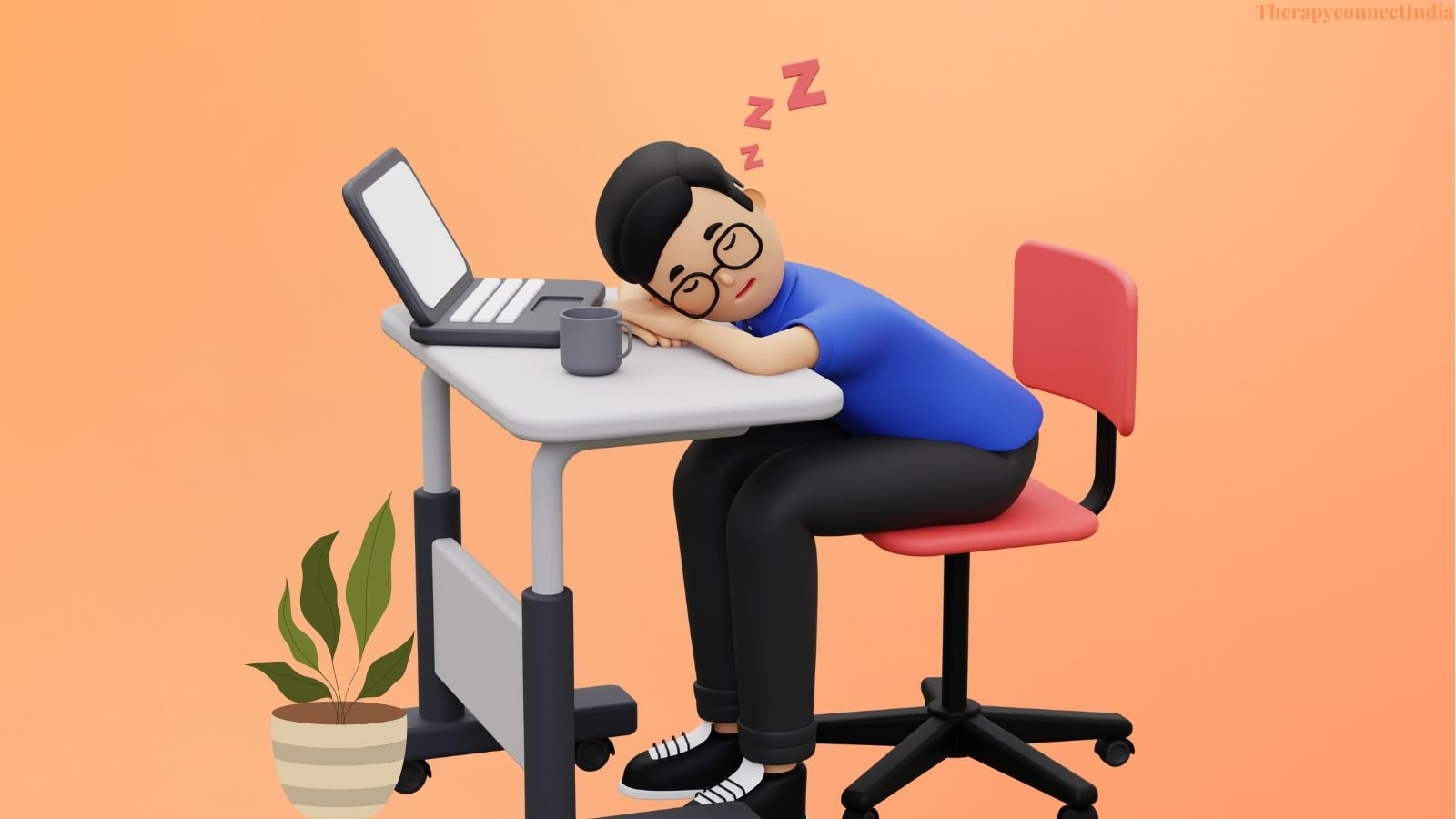Why Am I Always Tired? Sleep Deprivation and Mental Health in Students

Many students feel constantly tired, no matter how much they sleep. Balancing school, assignments, exams, and social life often means sacrificing rest, leading to student sleep issues that affect both physical and mental health. Sleep is essential for memory, focus, and emotional well-being, yet many students struggle with poor sleep habits due to stress, screen time, and irregular schedules.
Sleep deprivation doesn’t just cause fatigue—it impacts mental health, anxiety, burnout, and overall well-being. Understanding the connection between sleep and mental health is crucial for students to build better sleep habits and improve their academic and personal life.

Many students suffer from chronic sleep deprivation without realizing it. Sleep issues arise due to poor habits, lifestyle choices, and external pressures. Some common reasons include:
Academic Pressure and Late-Night Studying
Students often stay up late to finish assignments or cram for exams. The belief that "more study time = better grades" leads to irregular sleep patterns. However, lack of sleep affects memory retention and concentration, making it harder to perform well academically.
Screen Time and Social Media Distractions
Scrolling through social media, watching videos, or gaming late at night keeps the brain stimulated and alert. Blue light from screens interferes with melatonin production, making it harder to fall asleep. Websites like SleepFoundation.org explain how screens affect student sleep issues and offer tips on reducing screen time before bed.
Anxiety and Stress
Many students experience anxiety about exams, future careers, and personal relationships. Racing thoughts make it difficult to relax and fall asleep. Stress hormones like cortisol keep the body in an alert state, preventing deep sleep. Practicing mindfulness can help manage stress and improve sleep quality. Apps like Calm offer guided meditations for better sleep and anxiety reduction.
Poor Sleep Habits and Inconsistent Routines
Sleeping at different times every day confuses the body's internal clock. Late-night activities like consuming caffeine, heavy meals, or excessive studying can also disrupt sleep. Students who wake up at different times on weekdays and weekends experience "social jetlag," making them feel even more exhausted.

Sleep and mental health are closely linked. Poor sleep can worsen anxiety, depression, and burnout, while mental health struggles can disrupt sleep cycles. Understanding these links can help students prioritize healthy sleep habits.
Sleep Deprivation Increases Anxiety and Stress
Lack of sleep makes it harder for the brain to regulate emotions, increasing stress and anxiety. Sleep-deprived students are more likely to feel overwhelmed by small challenges, leading to panic attacks and difficulty concentrating. Websites like Verywell Mind provide expert advice on managing anxiety and stress for students.
Poor Sleep Contributes to Depression and Mood Swings
Sleep deprivation affects serotonin and dopamine levels, neurotransmitters responsible for happiness and emotional stability. A student who sleeps poorly for long periods may experience persistent sadness, lack of motivation, and social withdrawal. Seeking therapy or counseling can help students manage these challenges. Platforms like BetterHelp offer online therapy for sleep and mental health concerns.
Burnout and Cognitive Decline
Burnout is common among students juggling academic responsibilities, part-time jobs, and social life. When students don't get enough rest, they experience brain fog, forgetfulness, and slow thinking. Over time, chronic exhaustion leads to burnout, affecting both academic and personal life. Prioritizing rest and recovery can prevent physical and mental exhaustion.

Fixing student sleep issues requires small but effective changes in daily habits. Here are some practical tips for better sleep:
1. Set a Consistent Sleep Schedule
Going to bed and waking up at the same time every day helps regulate the body’s circadian rhythm. Even on weekends, sticking to a sleep routine prevents social jetlag.
2. Reduce Screen Time Before Bed
Avoid using phones, laptops, or TVs at least an hour before bedtime. Instead, try reading a book, meditating, or listening to calming music. Apps like Headspace provide sleep stories and relaxation techniques to help students unwind.
3. Manage Stress and Anxiety Before Bed
Practicing deep breathing, journaling, or guided meditation can help calm an anxious mind before sleep. Writing down worries or to-do lists can also prevent overthinking at night.

4. Create a Comfortable Sleep Environment
A quiet, dark, and cool room improves sleep quality. Using blackout curtains, white noise machines, and comfortable bedding can make sleep more restful.
5. Avoid Caffeine and Heavy Meals Late at Night
Caffeine, energy drinks, and heavy meals before bed can interfere with sleep. Instead, opt for herbal tea, warm milk, or light snacks to promote relaxation.
6. Engage in Physical Activity During the Day
Regular exercise, even light movement like walking or yoga, can improve sleep quality. However, intense workouts right before bed may increase energy levels, making it harder to fall asleep.
7. Seek Professional Help if Sleep Issues Persist
If sleep problems continue despite lifestyle changes, consulting a professional may help. Sleep therapists and mental health counselors can provide personalized strategies for improving sleep. Platforms like Talkspace offer affordable online counseling for students struggling with sleep and stress.

Improving sleep doesn’t just reduce tiredness—it enhances mental clarity, emotional stability, and overall well-being. Benefits of healthy sleep habits include:
For additional guidance, students can explore scientifically backed sleep strategies on The National Sleep Foundation.
Many students accept constant exhaustion as normal, but student sleep issues can significantly impact mental health, academic performance, and overall happiness. Understanding the link between sleep and mental health is the first step toward improving well-being and productivity.
By adopting healthy sleep habits, reducing stress, and making rest a priority, students can feel more energized, focused, and emotionally stable. Sleep is not a luxury—it’s an essential part of maintaining good mental health.
If you or someone you know is struggling with chronic exhaustion, anxiety, or burnout, seeking support from a therapist or counselor can help. Websites like BetterHelp and Headspace provide resources to improve sleep, anxiety, and stress management for students.
Prioritize your sleep and your mind and body will thank you.